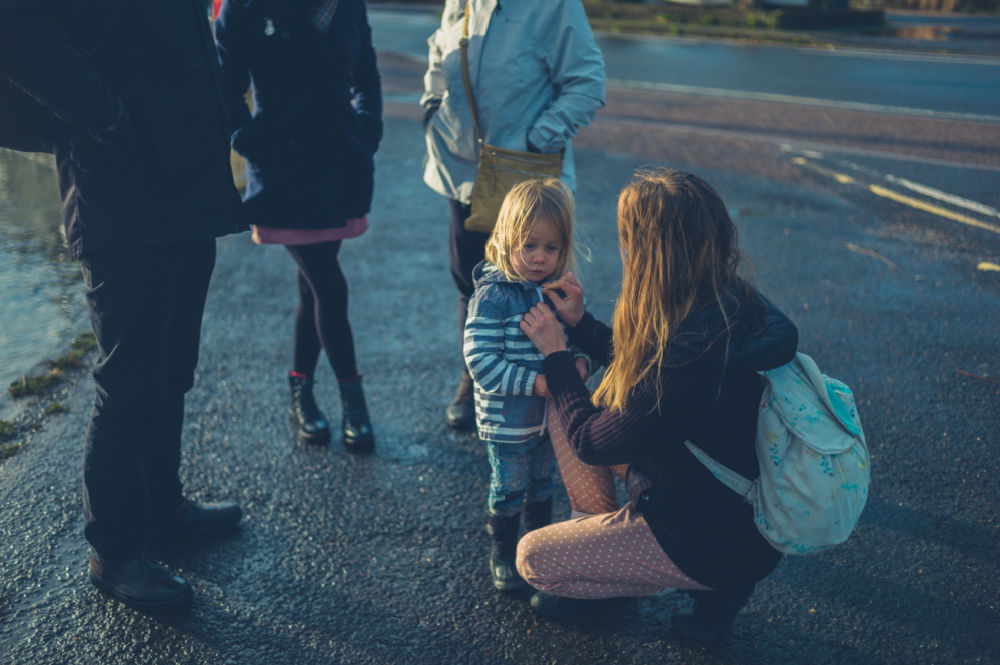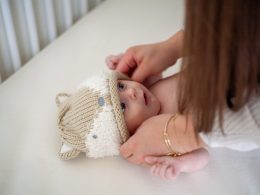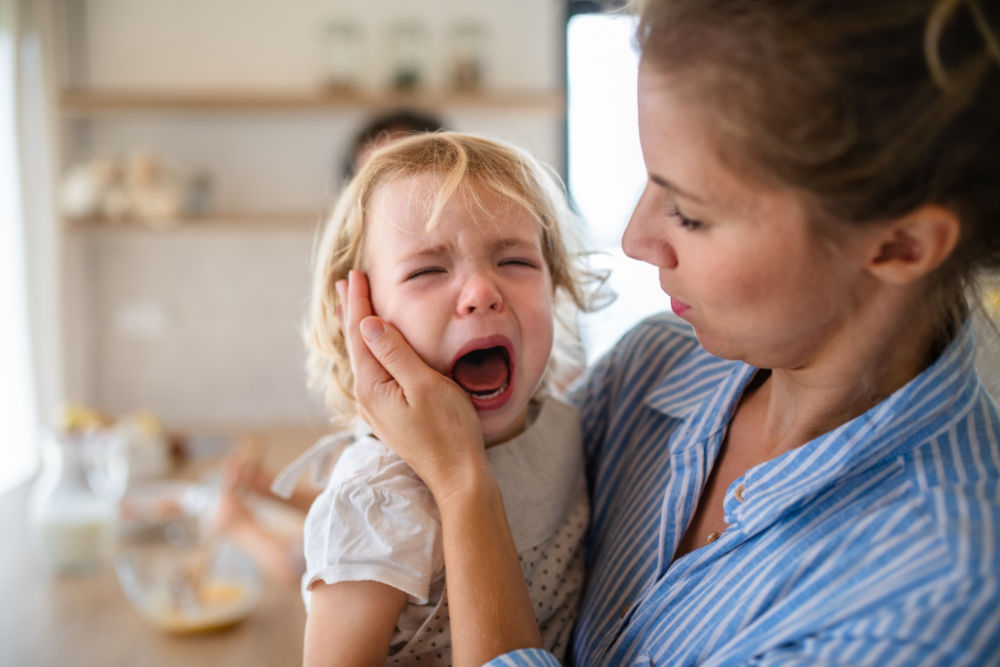Inside: Find out why responsive parenting promotes better outcomes in young children.
The instant my feet hit the asphalt I felt lighter.
Because my whole world revolved around taking care of my two and three-year-olds, I was desperate for a moment to myself. With the neighbourhood sidewalk in front of me and only my playlist to keep me company, this run was both a figurative and literal breath of fresh air.
When my run 10k app dinged, “Slow down and walk,” I should have slowed my breathing and watched the mallards swim in the duck pond.
Instead, I clicked on Facebook.
The top notification was like a punch to the gut.
“You are everything wrong with parenting these days. How will your kid ever learn to stand on his own two feet with a mom like you?”
My pulse pounded in my head and my face flushed. I scrambled wishing there was some to mass message everyone who read the woman’s comment, saying that I was only trying to help.
It was the first time I had received a negative comment on my Facebook page, but it wasn’t the last.
Because my content largely focuses on responsive, positive parenting, from time to time, I get comments like this.
The truth is, though so many people get this parenting philosophy, there are many who really don’t. It seems a portion of people believe that as long as children’s nutritional and safety needs are met, they should be left to self-soothe. Though they may be well-intentioned, these beliefs are misguided and inconsistent with developmental psychology.
Read: It takes a village: 3 anthropological reasons mothers need a community of support
The research is clear: Responsive parenting is foundational for the best developmental outcomes.
This hinges on one basic fact: humans are born prematurely when compared to other species and are therefore highly dependent on their caregivers for nutritional, social and emotional development.
Because of this, developmental research tends to use terms for babies’ first year like “the postpartum incubation period,” or will say that development happens within “the social cradle” – meaning that important learning and development happen cradled in someone’s arms. These terms are important because they highlight the fact that infants need closeness, responsiveness, and warmth to foster optimal development.
Because of this, babies are not meant to be fed, changed and left. Instead, they require responsive, timely care from their parents.
But the question remains what is timely and responsive?
Responsive parenting depends entirely on the parent-child relationship. Consider the example of me and one of my best friends…
When my babies were young, I would walk them pressed against my chest and often would mirror their expressions saying, “Oh you’re sad. Mama’s here.” In contrast, one of my closest friends typically snuggled in bed beside her babies rubbing their backs and shushing them.
Research shows that appropriate responsiveness develops within the parent-child relationship. So what my children come to expect is different from what my friend’s children expect. However, both paths lead to strong developmental outcomes.
Similarly, cross-cultural research finds that socialization and environment shape how parents respond to their young. In the United States and Canada, mothers tend to talk their children through their emotions while Gusii mothers are more inclined to soothe their children by holding them close. Nevertheless across countries the rate and frequencies that mothers respond to their infants are largely similar.
Therefore responsiveness varies from family to family and culture to culture. What matters is not how you respond but that the responsiveness is largely consistent, calm, and warm. On top of it, responsive parenting comes quite naturally.
Both parents and infants are hardwired for responsive interactions.
The mother-infant relationship is meant for this level of responsiveness.
First, mothers are highly sensitive to infants’ bids for attention. Because they think their babies are so cute, they find them hard to resist! In turn, infants prefer their mothers’ voices. They tend to soothe more readily when they hear her voice. Also, infants are drawn to contrast. So, the difference between the whites and irises of our eyes or face and hairline are particularly interesting to them as are human faces in general.
Biology has set up both mother and infant for high levels of interaction and closeness. And for good reason.
Infants experience a myriad of developmental benefits when their parents are highly responsive.
Read: What is Positive Parenting and Why Does it Matter?
Infants and children of highly responsive parents are calmer.
A resounding body of evidence shows that infants of highly responsive parents trust that their parents will meet their needs. As a result, they experience less stress, are soothed more easily, and show more appropriate emotional responses than infants with unreliably responsive or largely unresponsive parents.
Responsive parenting leads to greater independence
Around the age of two to three months old, infants begin to anticipate their mothers’ responses. As this happens, they begin intentionally engaging with their caregivers. In time, just how predictably warm and responsive mom is determined just how securely attached baby is.
This is important because secure attachment is responsible for a plethora of positive developmental outcomes that carry into adulthood. But in infancy and toddlerhood, secure attachment is associated with calmer, more engaged, and independent behaviour.
Children have more advanced language and cognition when their parents are highly responsive.
In a study of 9 and 13-month-olds, researchers found that high responsiveness resulted in more expressive language. A study that looked at the play and maternal responsiveness found that fifteen-month-olds with highly responsive, positive mothers performed better on cognitive tests, and exhibited more elaborate play behaviour and advanced vocabulary.
The TLDR?
Research shows that the more reliably parents respond to their infants’ and children’s bids for attention and care, the more they trust their needs will be met. This decreases stress and promotes feelings of calmness and security. These children become more independent because they aren’t easily overwhelmed and know their caregivers are there when they need them. On top of being calmer and more independent, these children show more advanced:
- cognitive development,
- language development, and
- play.
This doesn’t mean parents need to respond to every single whimper or bid for attention. What it does mean is that children benefit from predictable, loving, compassionate care.
So even though the internet comment section may not entirely approve, parents should comfort, support and interact with their children regularly to foster the best developmental outcomes.












you are very true about your thinking. Both parents and children are equally dependent on one another for emotional support and we should go through responsive parenting and take everything slowly and gradually.